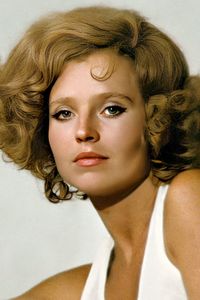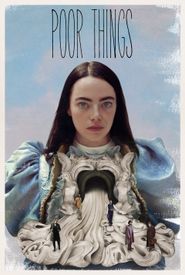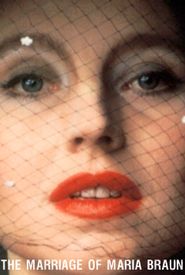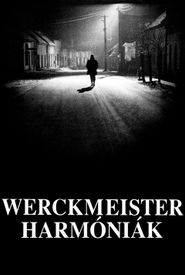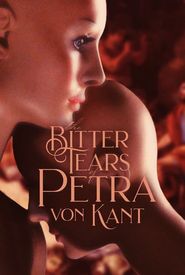Hanna Schygulla is a renowned German actress, born on Christmas Day, 1943, in Kattowice, Upper Silesia, then a section of Poland annexed by the Third Reich. Her father, a German infantryman, was in a POW camp in Italy until she was five years old.
After the war, the German population was expelled from the Kattowice area. Schygulla's childhood family situation parallels her role in The Marriage of Maria Braun (1979),typifying Germany's moral dilemmas at the end of World War II.
Schygulla's natural blonde beauty and versatility have kept her among the world's top actresses. She won the Best Actress award at Cannes in 1983 for The Story of Piera (1983),an Italian/German co-production.
She is one of many protégés of Rainer Werner Fassbinder, who gave her especially tender treatment and nurturing, while he terrorized, manipulated, and slept with many of the other actors and filmmakers he developed in his incestuous family-like theatrical and film troupes.
Over 12 years, Schygulla appeared in 23 Fassbinder movies, including his first feature film, The Marriage of Maria Braun (1979),Lili Marleen (1981),and Berlin Alexanderplatz (1980). After a disagreement with Fassbinder, she did not appear in his final four movies.
After Fassbinder's 1982 death, Schygulla appeared in a few commercial films and now concentrates on complex roles in films with unique, international social messages. Her better-known non-Fassbinder movies include Kenneth Branagh's Dead Again (1991),Casanova (1987),and Andrzej Wajda's A Love in Germany (1983).
She is renowned for portraying strong, sensual women, and her language ability enables her to appear in films produced by many countries. Her singing was featured in Lili Marleen (1981) and Sheer Madness (1983). Since 1997, she has turned away from movie acting, primarily to chanson singing, recording CDs, and appearing in the movie Hanna Schygulla Sings (1999).
